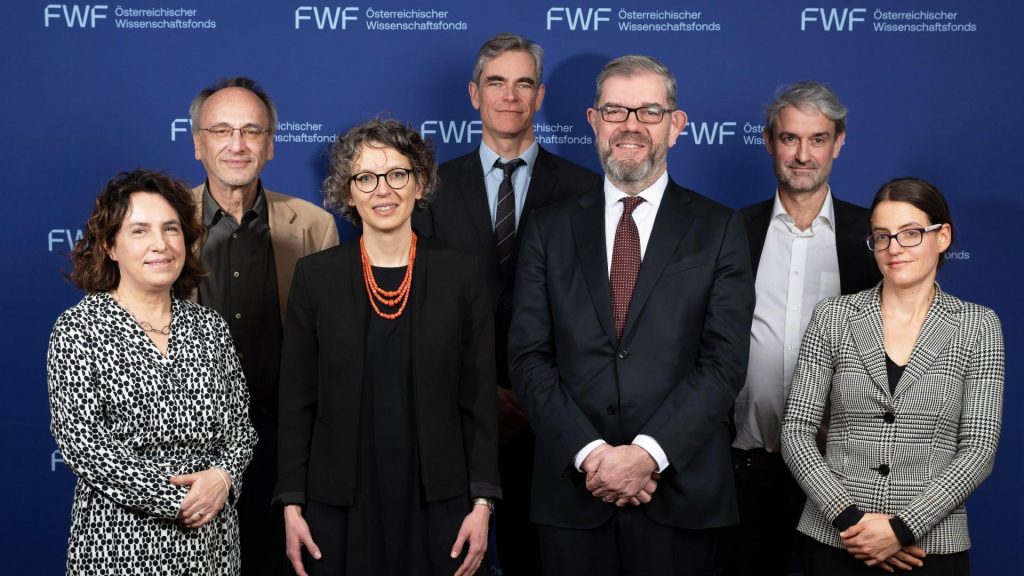“Knowledge in Crisis” Philosophy Project Wins €8.9 Million Grant
The Austrian Science Foundation (FWF) has awarded a €8.9 million “Cluster of Excellence” grant to the “Knowledge in Crisis” project headed by philosopher Tim Crane (Central European University).
The project involves researchers at CEU as well as the Universities of Vienna, Graz and Salzburg. The universities themselves have also committed money to the project, bringing its total funding to roughly €15 million. The project looks at how recent social and technological deveopments affect knowledge:
Today we face a crisis of knowledge. Our claims to knowledge are being threatened by rapid and spectacular developments in technology, and by attacks on the very ideas of knowledge and truth themselves. The flood of information on the internet challenges our ability to tell truth from falsehood, and there is a widespread rejection of the standards of scientific evidence and expertise. The crisis raises deep philosophical questions about knowledge, truth, science, ethics, and politics, and ultimately about our relationship to reality itself. These questions will be addressed in entirely new ways by this Cluster of Excellence, which will work to understand the crisis of knowledge in all its manifestations, and to find ways to combat it and reshape our relationship to knowledge.
Professor Crane writes that the aim of the project is to “to investigate various challenges to scientific and other knowledge by connecting many otherwise unconnected areas of philosophy: metaphysics, ethics, political and social philosophy, philosophy of language, philosophy of mind, and epistemology. The idea is to bring together areas of philosophy which are often isolated from one another, with the aim of getting a deeper understanding of the current crises of knowledge.”
He notes that the funds will be used for, among other things, 18 new academic appointments (postdocs and professors) and for funding PhD students.

The board of directors for the Knowledge in Crisis Project (l to r): Katalin Farkas, Marian David, Paulina Sliwa, Max Kölbel, Tim Crane, Hans Bernhard Schmid, and Charlotte Werndl.
In addition to Professor Crane, the project’s board of directors includes:
- Marian David (University of Graz)
- Katalin Farkas (Central European University)
- Max Kölbel (University of Vienna)
- Hans Bernhard Schmid (University of Vienna)
- Paulina Sliwa (University of Vienna)
- Charlotte Werndl (University of Salzburg).
You can learn more about the Cluster of Excellence awards here.



Wonderful news. A very important project both in terms of its timeliness and relevance not only for philosophy and all other knowledge enterprises.
The choice of Prof Tim Crame is an excellent one and I wish the project all the best . The only point that surprised me was the absence of Philosophy of Science in the list of subjects/topics mentioned above , a list which includes Philosophy of Mind and others. Once again I thank Daily Nous for sharing this important information with me and hope more information/ knowledge? will be made available in the coming days. With warm regards and best wishes, Narasimhan.
Philosophy of Science is definitely not absent! Rather, it is one of the central areas involved. In particular, we have Charlotte Werndl as a member of the board of directors, and Tarja Knuuttile as a key researcher. Both pursue research in philosophy of science within the project.
A very big congratulations to you prof and the team. It is a source of encouragement in this time that some philosophy departments are shutting down
Knowledge has been “in crisis” ever since public discourse involving claims to knowledge became a salient part of social life, mainly in ancient Athens, and sophistry and skepticism emerged as responses to this development. “Post-truth” attitudes and practices aren’t new in the world; philosophy first emerged, as such, in response to them. To the extent that the various “areas of philosophy” that Prof. Crane mentions are currently “unconnected,” we have lost touch with what philosophy, for Socrates and Plato, was all about.
As soon as I saw “knowledge in Crisis”, my mind was immediately drawn to how, I suppose, propositional knowledge is conceptualized by many today. Propositional Knowledge is seen as something out there to be acquired. Is that?
When knowledge is seen in this light, has it not been confused with information? Do we acquire knowledge or information? Is it not possible to acquire a lot of information about things without actually knowing them? Is knowledge not a more sublime process that involves holding a belief that is true and justified? Even when the necessity of other conditions has been highlighted, is knowledge not still a more sublime process?
This was what came to my mind immediately. I think we need to come to an understanding of knowledge beyond simply acquisition of information. One might be a professor of a particular field simply by much acquisition of information about that field. I might be wrong, but it is possible that the professor in question does not have knowledge of the much information they have acquired. Philosophy affords us the avenue to go beyond information acquisition to Knowledge.
In deed, I felt happy to have seen how this crisis has been described here: “The flood of information on the internet challenges our ability to tell truth from falsehood, and there is a widespread rejection of the standards of scientific evidence and expertise.” I felt happy because my idea about the crisis of knowledge which I learnt from my lecturer, Prof. Anselm Jimoh, was depicted by this statement, as now obvious.
The other part did not readily come to my mind but it has been discussed many times by another lecturer of mine, Prof. Isaac Ukpokolo. He showed us, especially through one of the works of Thomas Kuhn, how science cannot be termed the paradigm of rationality since we have had various paradigms of rationality.
Let us have knowledge properly conceptualized. Go on team.
Cheers!